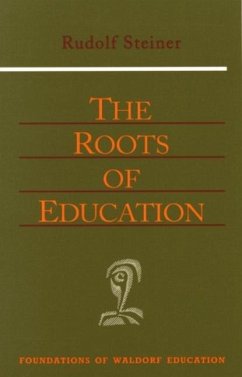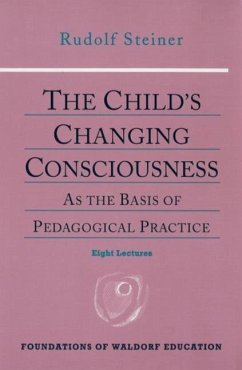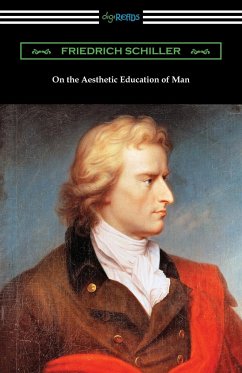
The Spiritual Ground of Education
(Cw 305) Volume 15
Versandkostenfrei!
Versandfertig in über 4 Wochen
16,99 €
inkl. MwSt.

PAYBACK Punkte
8 °P sammeln!
Given during a conference on spiritual values in education and life attended by many prominent people of the time, Steiner's Oxford lectures present the principles of Waldorf education at the highest cultural level. "The Manchester Guardian reported: "Steiner's lectures...brought to us in a very vivid way an ideal of humanity in education. He spoke to us about teachers who, freely and unitedly, unrestricted by external prescription, develop their educational methods exclusively out of a thorough knowledge of human nature. He spoke to us about a kind of knowledge needed by the teacher, a knowle...
Given during a conference on spiritual values in education and life attended by many prominent people of the time, Steiner's Oxford lectures present the principles of Waldorf education at the highest cultural level. "The Manchester Guardian reported: "Steiner's lectures...brought to us in a very vivid way an ideal of humanity in education. He spoke to us about teachers who, freely and unitedly, unrestricted by external prescription, develop their educational methods exclusively out of a thorough knowledge of human nature. He spoke to us about a kind of knowledge needed by the teacher, a knowledge of the being of man and the world, which is at the same time scientific and also penetrates into the most intimate inner life, which is intuitive and artistic." Long out of print, these lectures are among the best introductions to Waldorf education.















